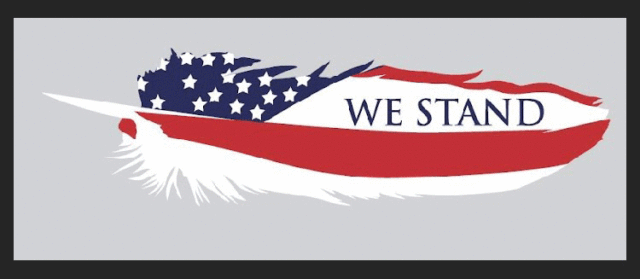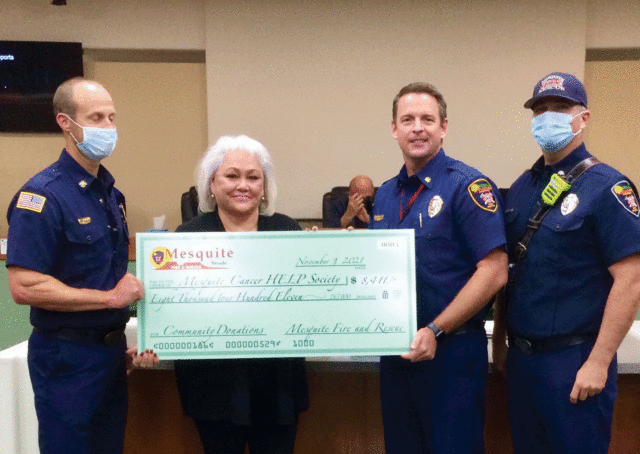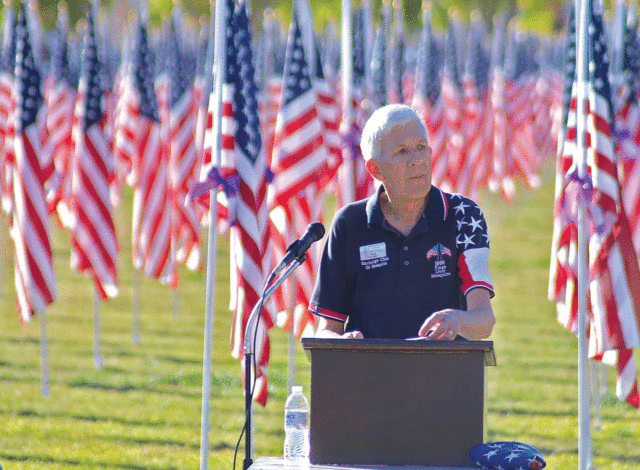




No One Asked Me But… (July 28, 2021)
By DR. LARRY MOSES
No one asked me but… In the past I have reported on an imaginary meeting with some of our founding fathers and other leaders of the past. I had the same group of friends over this week and asked that they speak to the issue of the Second Amendment and the welfare state. They jumped right in to the Second Amendment debate.
George Washington started the conversation with: “A free people ought not only be armed and disciplined, but they should have sufficient arms and ammunition to maintain a status of Independence from any who might attempt to abuse them, which would include their own government.” Thomas Jefferson added, “The tree of liberty must be refreshed from time to time with the blood of patriots and tyrants.”
All of my quests nodded their heads in agreement when I read the Second Amendment. “A well regulated Militia, being necessary to the security of a Free State, the right of the people to keep and bear Arms, shall not be infringed.”
“A well regulated militia, composed of the body of the people, trained in arms, is the best most natural defense of a free country,” replied James Madison. He continued: “The Constitution preserves the advantage of being armed which Americans possess over the people of almost every other nation where the governments are afraid to trust the people with arms.” Alexander Hamilton chimed in with, “If the representatives of the people betray their constituents, there is then no resource left but in the exertion of that original right of self-defense which is paramount to all positive forms of government.”
Sam Adams emphatically stated: “If ever time should come, when vain and aspiring men shall possess the highest seats in Government, our country will stand in need of its experienced patriots to prevent its ruin.” Nodding in agreement, Thomas Paine concurred: “It is the responsibility of the patriot to protect his country from its government. He that would make his own liberty secure must guard even his enemy from oppression; for if he violates this duty he establishes a precedent that will reach to himself.”
Thomas Jefferson added, “Laws that forbid the carrying of arms…disarm only those who are neither inclined nor determined to commit crimes. Such laws make things worse for the assaulted and better for the assailants; they serve rather to encourage than prevent homicides, for an unarmed man may be attacked with greater confidence than an armed one. The beauty of the second amendment is that it will not be needed until they try to take it.”
Noah Webster interrupted to say, “The supreme power in America cannot enforce unjust laws by the sword, because the whole body of the people are armed, and constitute a force superior to any band of regular troops that can be, on any pretence, raised in the United States.” Thomas Jefferson replied, “The strongest reason for the people to retain the right to keep and bear arms is, as a last resort, to protect themselves against tyranny in government. What country can preserve its liberties if its rulers are not warned from time to time that their people preserve the spirit of resistance?”
“Is life so dear or peace so sweet as to be purchased at the price of chains and slavery? Forbid it, Almighty God. I know not what course others may take, but as for me, give me liberty or give me death,” cried Patrick Henry. Ben Franklin thought that a bit dramatic.
I wondered how my exalted guests would react to the present day welfare state. Thomas Jefferson felt, “Our tenet ever was that Congress had not unlimited powers to provide for the general welfare, but were restrained to those specifically enumerated, and that, as it was never meant that they should provide for that welfare but by the exercise of the enumerated powers…” “Charity is no part of the legislative duty of the government,” interjected James Madison. “When the people find they can vote themselves money that will herald the end of the republic,” Ben Franklin replied. James Madison responded, “If Congress can do whatever in their discretion can be done by money, and will promote the General Welfare, the Government is no longer a limited one, possessing enumerated powers, but an indefinite one….”
“I cannot find any authority in the Constitution for public charity,” Franklin Pierce repeated the statement he original made when he was asked to approve legislation to fund a mental hospital. He declined to do so. “To approve the measure would be contrary to the letter and spirit of the Constitution and subversive to the whole theory upon which the Union of these States is founded.” James Madison spoke in support of Pierce. “I cannot undertake to lay my finger on that article of the Constitution which granted a right to Congress of expending, on objects of benevolence, the money of their constituents.”
Thomas Jefferson concurred. “To take from one, because it is thought his own industry and that of his father’s has acquired too much, in order to spare to others, who, or whose fathers, have not exercised equal industry and skill, is to violate arbitrarily the first principle of association, the guarantee to everyone the free exercise of his industry and the fruits acquired by it.”
Ben Franklin concluded the conversation on welfare as follows: “I am for doing well to the poor, but…I think the best way of doing well to the poor, is not making them easy in poverty, but leading or driving them out of it. I observed…that the more public provisions were made for the poor, the less they provided for themselves, and of course became poorer. And, on the contrary, the less was done for them, the more they did for themselves, and became richer.”
Thought of the week…. “Foolish liberals who are trying to read the Second Amendment out of the Constitution by claiming it’s not an individual right or that it’s too much of a public safety hazard, don’t see the danger in the big picture. They’re courting disaster by encouraging others to use the same means to eliminate portions of the Constitution they don’t like.”
― Alan M. Dershowitz














